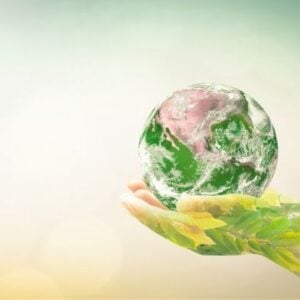The World Bank Group’s Country Partnership Framework for the Philippines covering 2025 to 2031 arrives at a pivotal moment in the country’s economic and social trajectory. With the Philippine economy nearing upper‑middle‑income status and development indicators showing considerable progress, the new framework is designed to build on this momentum while addressing persistent gaps in access to services, resilience and job creation.
It represents a joint strategy of the World Bank’s International Bank for Reconstruction and Development, the International Finance Corporation and the Multilateral Investment Guarantee Agency, demonstrating an integrated approach that brings together public‑sector financing, private‑sector investment and risk mitigation.
What makes this Country Partnership Framework particularly noteworthy is its scale and scope. The World Bank Group plans to mobilise an estimated twenty‑two to twenty‑three billion dollars for Philippine programmes over six years. Such a large envelope signals confidence in the country’s macroeconomic stability and capacity to absorb investment.
The initiative dovetails with the Philippine Development Plan 2023‑2028 and the long‑term vision embodied in AmBisyon Natin 2040, ensuring that international assistance aligns with domestic priorities rather than imposing outside agendas.
In his remarks at the framework’s ceremonial launch, President Ferdinand Marcos Jr. emphasised that the CPF mirrors his administration’s commitments to expand healthcare, strengthen education, create more jobs and improve disaster preparedness.
Central to the framework is its emphasis on human capital development. By investing in universal healthcare, child nutrition and primary care, the partnership aims to help nineteen million more Filipinos access quality health services over the CPF period. Improved education is another pillar, with plans to support curriculum reform, teacher training and the development of digital platforms capable of reaching fifteen million students.
The human‑capital focus acknowledges that economic growth is sustainable only when the population is healthy, educated and empowered to contribute meaningfully to society.
Job creation and private‑sector development form the second major thrust. The framework seeks to generate more and better jobs by supporting policy and regulatory reforms that enhance competitiveness, modernise agriculture and expand digital infrastructure. Through the International Finance Corporation, the World Bank Group intends to mobilise roughly two billion dollars in private capital, which is expected to help create four million higher‑quality jobs.
This emphasis on private‑sector dynamism recognises that inclusive growth depends on entrepreneurship and innovation, not just public spending. At the same time, efforts to broaden access to digital infrastructure should enable millions more people to participate in the modern economy, whether through e‑commerce, remote work or digital banking.
A third defining feature of the CPF is its focus on resilience to climate change and other shocks. The Philippines remains highly vulnerable to typhoons, earthquakes and other disasters, with over seventy per cent of the population exposed to multiple hazards. To address this, the framework supports the government’s modernised Pantawid Pamilyang Pilipino Program and aims to expand adaptive social protection to cover twelve and a half million beneficiaries. It also commits to helping thirteen million people become more resilient through improved infrastructure, climate‑smart agriculture and enhanced disaster‑risk financing. By integrating resilience into social programmes and development planning, the World Bank framework recognises that protecting lives and livelihoods from climate‑related shocks is essential to sustaining economic gains.
Digital transformation is another cross‑cutting priority. The CPF includes plans to enhance digital government services for twenty million citizens, expanding the reach and efficiency of public administration. Investments in digital infrastructure and services should make it easier for Filipinos to access healthcare, education, social protection and other government programmes. Moreover, digitisation is expected to support transparency, reduce corruption and improve the delivery of services in rural and remote areas.
In essence, the Country Partnership Framework for 2025‑2031 encapsulates an ambitious but balanced vision: one that marries large‑scale financing with targeted reforms to advance human capital, create jobs, build resilience and harness technology. It signals a deepened partnership between the World Bank Group and the Philippines and offers a roadmap for leveraging international resources to achieve national development goals. As the framework unfolds, its success will hinge on effective implementation, sustained reform and the ability to translate financial commitments into concrete improvements in the lives of millions of Filipinos.






